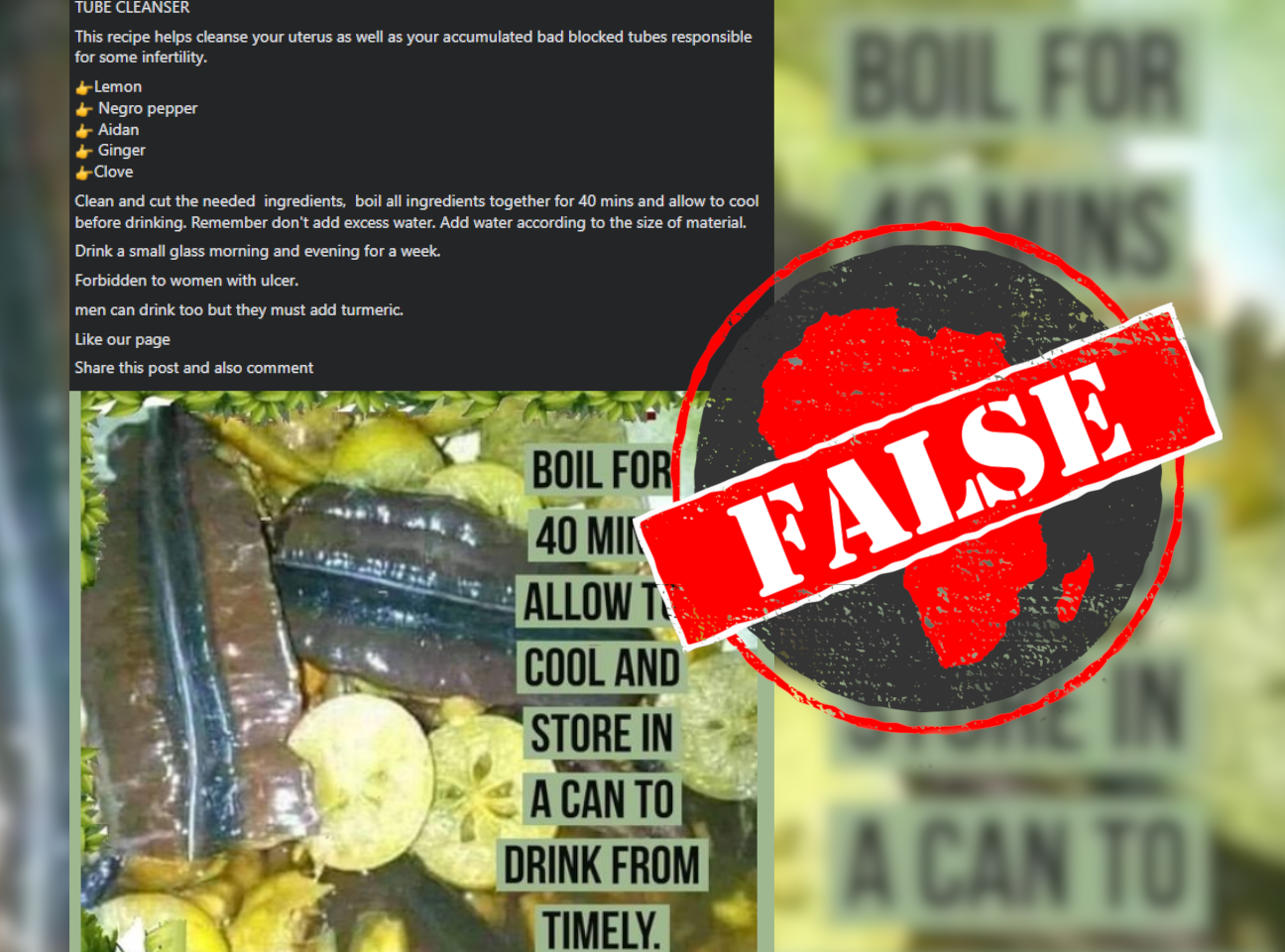IN SHORT: A Facebook post claims its recommended recipe will “cleanse” the uterus. But experts say there is no evidence of this.
“This recipe helps cleanse your uterus as well as your accumulated bad blocked tubes responsible for some infertility,” reads a post on Facebook.
The post, dated 7 June 2023, lists the ingredients for this recipe: lemon, negro pepper, aidan, ginger and clove.
It then instructs readers on how to prepare the mixture and when to take it.
“Clean and cut the needed ingredients, boil all ingredients together for 40 mins and allow to cool before drinking. Remember don't add excess water. Add water according to the size of material. Drink a small glass morning and evening for a week,” it says.
According to the post, the mixture is “forbidden to women with ulcer” but men can take it if turmeric is added.
The post has been reposted several times with a few comments thanking the author. We found the same claim here.
But is it true that this recipe can “clean” the womb and treat infertility? We took a closer look.

What is uterus cleansing?
The uterus, also called the womb, is an important organ in a woman’s body. It is where foetuses, or unborn babies, grow. Abnormalities in the uterus can affect fertility.
Occasionally, dilation and curettage (D&C) is used to remove tissue from inside the uterus, or “clean” it, according to the US non-profit organisation Mayo Clinic. In some cases, D&C is combined with a process called a hysteroscopy, where the doctor inserts a slim instrument with light and camera into the uterus.
These procedures may be done to remove tissue, tumours, placenta remaining after pregnancy, and cervical polyps.
Experts say ‘washing’ the uterus ‘not supported by scientific evidence’
“These claims are not supported by scientific evidence. There is currently no such thing as ‘washing’ the uterus,” Oladapo Olayemi, a professor of obstetrics and gynaecology at the University of Ibadan, told Africa Check.
The professor said there was no research to support the claims made about this recipe.
“There is no scientific rationale to even develop a hypothesis to test in research. These substances are used for food and no observation from eating them has suggested that they act on the uterus, not even in animals,” he said.
He advised those who were worried about infertility to seek medical advice from qualified health practitioners.
Republish our content for free
For publishers: what to do if your post is rated false
A fact-checker has rated your Facebook or Instagram post as “false”, “altered”, “partly false” or “missing context”. This could have serious consequences. What do you do?
Click on our guide for the steps you should follow.
Publishers guideAfrica Check teams up with Facebook
Africa Check is a partner in Meta's third-party fact-checking programme to help stop the spread of false information on social media.
The content we rate as “false” will be downgraded on Facebook and Instagram. This means fewer people will see it.
You can also help identify false information on Facebook. This guide explains how.


Add new comment